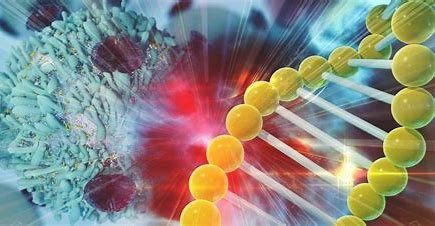FDA Approves First Gene Therapy for the Treatment of High-Risk, Non-Muscle-Invasive Bladder Cancer
19 December 2022 | Monday | News

Image Source : Public Domain
"This approval provides healthcare professionals with an innovative treatment option for patients with high-risk non-muscle invasive bladder cancer that is unresponsive to BCG therapy," said Peter Marks, M.D., Ph.D., director of the FDA's Center for Biologics Evaluation and Research. "Today's action addresses an area of critical need. The FDA remains committed to facilitating the development and approval of safe and effective cancer treatments."
Bladder cancer, one of the more common forms of cancer, is a disease in which malignant (cancer) cells form a tumor in the tissues of the bladder. These abnormal cells can invade and destroy normal body tissue. Over time, the abnormal cells can also metastasize (spread) through the body. Most newly diagnosed bladder cancers (75% to 80%) are classified as NMIBC – a type of cancer that has grown through the lining of the bladder but hasn't yet invaded the muscle layer. This type of cancer is associated with high rates of recurrence (between 30 to 80%) and the risk of progression to invasive and metastatic cancer.
Treatment and care of patients with high-risk NMIBC, including those with carcinoma in situ, or CIS (abnormal cancer cells found in the place where they first formed and that have not spread to nearby tissue), often involves removing the tumor and the use of BCG to reduce the risk that the cancer will recur. Few effective treatment options exist for patients who develop BCG-unresponsive disease. The failure to achieve a complete response, or the disappearance of all signs of cancer as seen on cystoscopy, biopsied tissue, and urine, is associated with an increased risk of death or a disease-worsening event. Without treatment, the cancer can invade, damage tissues and organs, and spread through the body. According to the Centers for Disease Control and Prevention, about 57,000 men and 18,000 women are diagnosed with bladder cancer annually, and roughly 12,000 men and 4,700 women die from the disease each year in the United States.
The safety and effectiveness of Adstiladrin was evaluated in a multicenter clinical study that included 157 patients with high-risk BCG-unresponsive NMIBC, 98 of whom had BCG-unresponsive CIS with or without papillary tumors and could be evaluated for response. Patients received Adstiladrin once every three months for up to 12 months, or until unacceptable toxicity to therapy or recurrent high-grade NMIBC. Overall, 51% of enrolled patients using Adstiladrin therapy achieved a complete response (the disappearance of all signs of cancer as seen on cystoscopy, biopsied tissue, and urine). The median duration of response was 9.7 months. Forty-six percent of responding patients remained in complete response for at least one year.
Adstiladrin is administered once every three months into the bladder via a urinary catheter. The most common adverse reactions associated with Adstiladrin included bladder discharge, fatigue, bladder spasm, urinary urgency, hematuria (presence of blood in urine), chills, fever, and painful urination. Individuals who are immunosuppressed, or immune-deficient should not come into contact with Adstiladrin.
This application was granted Priority Review, Breakthrough Therapy, and Fast Track designations.
The FDA granted approval of Adstiladrin to Ferring Pharmaceuticals A/S.
Most Read
- Innovations In Magnetic Resonance Imaging Introduced By United Imaging
- Management of Relapsed/Refractory Multiple Myeloma
- 2025 Drug Approvals, Decoded: What Every Biopharma Leader Needs to Know
- BioPharma Manufacturing Resilience: Lessons From Capacity Expansion and Supply Chain Resets from 2025
- APAC Biopharma Review 2025: Innovation, Investment, and Influence on the Global Stage
- Top 25 Biotech Innovations Redefining Health And Planet In 2025
- How Health Systems Are Reshaping Drug Adoption, Partner Models, and Market Access in 2026
- The New AI Gold Rush: Western Pharma’s Billion-Dollar Bet on Chinese Biotech
- Single-Use Systems Are Rewiring Biopharma Manufacturing
- The State of Biotech and Life Science Jobs in Asia Pacific – 2025
- Asia-Pacific Leads the Charge: Latest Global BioSupplier Technologies of 2025
- Invisible Threats, Visible Risks: How the Nitrosamine Crisis Reshaped Asia’s Pharmaceutical Quality Landscape
Bio Jobs
- Sanofi Turns The Page As Belén Garijo Steps In And Paul Hudson Steps Out
- Global Survey Reveals Nearly 40% of Employees Facing Fertility Challenges Consider Leaving Their Jobs
- BioMed X and AbbVie Begin Global Search for Bold Neuroscience Talent To Decode the Biology of Anhedonia
- Thermo Fisher Expands Bengaluru R&D Centre to Advance Antibody Innovation and Strengthen India’s Life Sciences Ecosystem
- Accord Plasma (Intas Group) Acquires Prothya Biosolutions to Expand Global Plasma Capabilities
- ACG Announces $200 Million Investment to Establish First U.S. Capsule Manufacturing Facility in Atlanta
- AstraZeneca Invests $4.5 Billion to Build Advanced Manufacturing Facility in Virginia, Expanding U.S. Medicine Production
News











